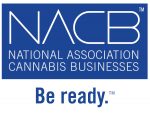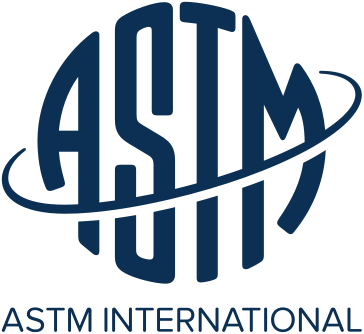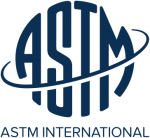According to a press release, the National Association of Cannabis Businesses (NACB) launches today, becoming the first self-regulatory organization (SRO) for the cannabis industry. With their mission to help compliance, transparency and growth of cannabis companies, they will lead member businesses in establishing voluntary national standards, addressing issues like advertising and financial integrity.
A team of experienced legal regulatory professionals will lead member businesses through a process of developing those standards. Andrew Kline, president of the NACB, was a senior advisor to Vice President and then-Senator Joseph Biden, served as an Assistant United States Attorney in the District of Columbia and in the Enforcement Bureau of the FCC. Their chief executive officer, Joshua Laterman, began working on NACB three years ago, but before that he had two decades of experience as general counsel at global financial and investment institutions. Doug Fischer, their chief legal officer and director of standards, spent the past nine years in cannabis law and financial regulation and enforcement at the law firm Cadwalader Wickersham and Taft.

According to the press release, SROs have proven to be effective in other industries at limiting government interference and overregulation, while preserving public safety. FINRA (Financial Industry Regulatory Authority) is an example of an SRO that serves the financial industry. It is a non-governmental organization that helps regulate member brokerage firms and exchange markets, working to help their members stay compliant with regulations set by the Securities and Exchange Commission. Much like the rapid growth of the financial markets over the past 30 years, the cannabis industry is experiencing exponential growth while regulators try to keep up.
“The cannabis industry is on a historical growth trajectory that is expected to continue for years to come, but even the most established, well-run businesses recognize that the future favors the prepared,” says Josh Laterman, CEO of NACB. “As other industries have experienced with their SROs, establishing and committing to voluntary national standards will enable cannabis business owners to demonstrate impeccable business and compliance practices to consumers, regulators, banks and investors.”
According to Doug Fischer, chief legal officer and director of standards, they will focus on a variety of topics that align with the federal enforcement priorities. So these standards might not cover some of the product safety and quality aspects that ASTM International and FOCUS touch on, rather addressing issues like advertising, financial integrity, preventing diversion across state lines, prevention of youth use and corporate responsibility. Another important distinction to make is that an organization like ASTM International sets standards, but the NACB as an SRO is tasked with enforcing them as well.

“From our perspective, businesses have been having a hard time navigating the complex state regulations, particularly those operating in multiple states,” says Fischer. “That is further complicated by the current administration not solidifying their stance on recreational cannabis.” The Cole Memo put out under the Obama Administration set clear federal enforcement priorities, allowing cannabis businesses and states to identify ways to avoid federal government interference or prosecution.
The current administration has done nothing but fuel regulatory uncertainty. This is particularly important given this week’s news regarding the leaders at the Justice Department making inflammatory and threatening statements regarding legal medical cannabis. “It causes these businesses, who should be focused on their own day-to-day operations, instead focusing on complying with what they think the federal government wants and regulatory compliance with state regulations,” says Fischer. “We can help solve that problem by making it easier for companies to become compliant, not only with state regulations but federal guidance as well. This has been proven by other SROs, that if we set our own standards and abide by them, federal regulators might be guided by the industry’s self-policing in determining how to regulate the cannabis industry.” According to Andrew Kline, it could also provide a window of opportunity for better banking access.
 The founder and CEO, Joshua Laterman, used to work in the banking industry and recognized the need for a cannabis industry SRO. “He saw an incredible opportunity in a projected $50 billion market by 2026, and as a former banker he saw the opportunity for banks to do business in the industry, but they don’t know who to trust,” says Kline. “Starting a self regulatory organization can help fill that void, allowing companies to identify and put a stamp of approval on a segment of the population that is uber-compliant, therefore giving banks a view into who they should and shouldn’t do business with.” While it won’t immediately resolve the many issues associated with cannabis businesses’ accounting, the NACB could be a major help to smaller businesses looking to prove their worth. “The important point here is that based on the experience of our team, we know what is important to the federal government, and we understand that members will be shaping standards with us, so we will also guide them to federal priorities,” says Kline.
The founder and CEO, Joshua Laterman, used to work in the banking industry and recognized the need for a cannabis industry SRO. “He saw an incredible opportunity in a projected $50 billion market by 2026, and as a former banker he saw the opportunity for banks to do business in the industry, but they don’t know who to trust,” says Kline. “Starting a self regulatory organization can help fill that void, allowing companies to identify and put a stamp of approval on a segment of the population that is uber-compliant, therefore giving banks a view into who they should and shouldn’t do business with.” While it won’t immediately resolve the many issues associated with cannabis businesses’ accounting, the NACB could be a major help to smaller businesses looking to prove their worth. “The important point here is that based on the experience of our team, we know what is important to the federal government, and we understand that members will be shaping standards with us, so we will also guide them to federal priorities,” says Kline.
Fischer says a self-regulatory organization is always driven by the industry and needs of the members, but they have the added unique challenge of working in a web of competing governmental interests. “Self-regulatory organizations can shape the future of regulation; we don’t know if or when federal prohibition will end, but if it does, the government is going to look at a variety of areas for regulations,” says Fischer. “We might be able to help shed light on our self-regulating nature and if we can demonstrate the best practices for specific areas, states and even the federal government could look to that, giving our members an advantage.” According to their press release, licensed cannabis growers, dispensaries or any other ancillary business may apply to become members. Some of the founding members include Buds & Roses, Etain, Green Dot Labs, Local Product of Colorado, Matrix NV, Mesa Organics, among others.






 ASTM International meets the World Trade Organization (WTO) principles for developing international standards, and maintains the attributes outlined in the
ASTM International meets the World Trade Organization (WTO) principles for developing international standards, and maintains the attributes outlined in the 

